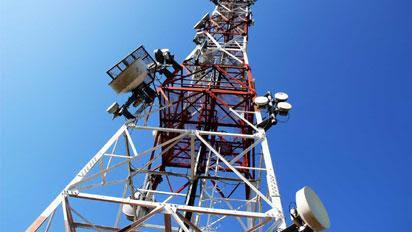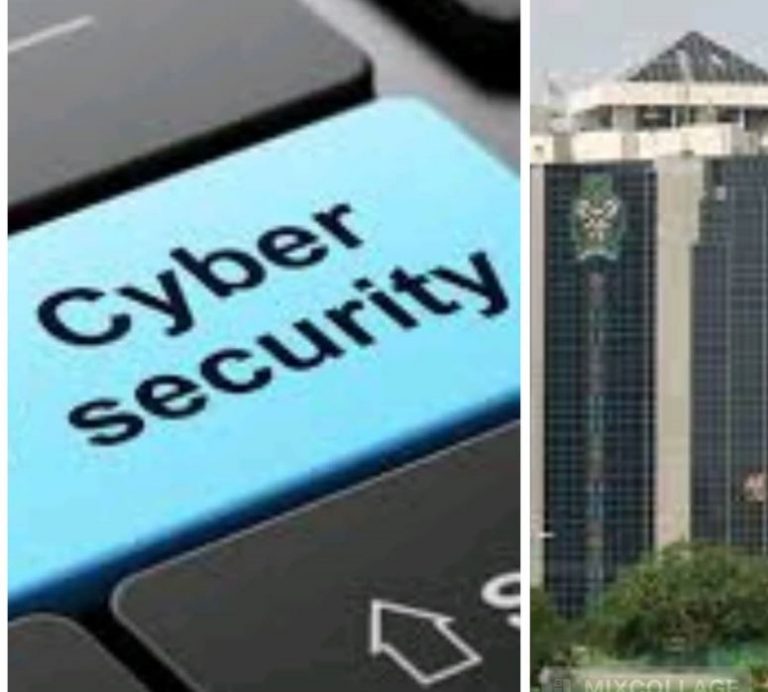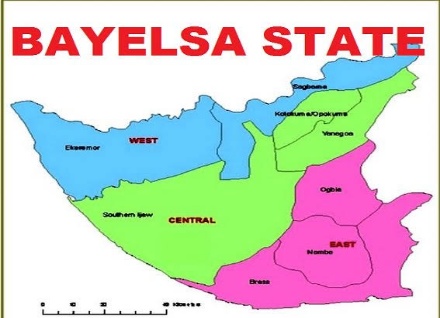Business
Telcos’ Umbrella Body Confirms Withdrawal Of USSD Services To Banks
Published
1 year agoon
By
Editor
Umbrella body of the telcom companies, the Association of Licensed Telecom Operators in Nigeria, ALTON, has provided more details on its dispute with Deposit Money Banks (DMBs) over N120b USSD debt.
ALTON issued a statement on Friday to confirm that its members have gotten the nod to withdraw USSD services rendered to the banks.
The statement jointly signed by the Chairman and Head of Operations of ALTON, Gbenga Adebayo and Gbolahan Awonuga respectively, said the approval was granted because despite multi-party stakeholder efforts to resolve the situation and prevent any impact on services, especially the efforts made by the Minister of Communication and Digital Economy, Prof. Isa Pantami and the NCC, the banks have continued to incur greater and greater debt, without making the commensurate payments.
READ ALSO: No Court Affirmed Apapa As Acting LP National Chairman – Edo Labour Party
According to the statement, “every time some progress is made, the Deposit Money Banks, DMBs come up with reasons to take stakeholders several steps back, in this matter.”
” Members of the public will recall that Mobile Network Operators, MNOs and DMBs have had protracted disagreements concerning the appropriate USSD pricing model for financial transactions, transparency of charges, mode of collection and liability for payment of the outstanding and continuous service fees due to the MNOs (which currently stands at over N120 Billion).
“Due to the inability of MNOs and DMBs to reach an agreement on the issues, MNOs in 2021 sought to disconnect DMBs due to the unpaid debts which stood at N42 Billion as of that time.
“It is now obvious that the level of debt is unsustainable given the time/value huge cost of the continuous upgrade and operation of the systems and infrastructure dedicated to supporting USSD transactions of DMBs.
READ ALSO: Everything To Know About New Twitter CEO, Linda Yaccarino
“In view of the foregoing, unless DBMs meet their debt obligations, MNOs will disconnect all banks indebted to them for USSD services rendered, ” the statement added.
Although, the statement did not state when the action will take effect, Vanguard gathered reliably, that disconnection started 7.00pm today.
You may like
Business
CAC Opens Centre For Registration Of PoS Operators
Published
4 days agoon
May 9, 2024By
Editor
The Corporate Affairs Commission has inaugurated a centre for bulk registration of Point of Sale operators in its database.
The CAC Registrar-General, Hussaini Magaji, said this while inaugurating the centre stationed at its Federal Capital Territory Office in Abuja on Wednesday.
According to Magaji, the importance of registering the PoS operators in the commission’s database cannot be over emphasised.
He said the centre was well equipped with all the necessary facilities to operate 24 hours a day and ensure the commission’s achievement of its purpose.
READ ALSO: ICYMI: FG To Delist Naira From P2P Platforms
“What we did was accommodate the request from the Fintechs.
“We have allowed them to integrate with the Corporate Affairs Commission; they have developed their structure, and we gave them access.
“Once they supply the necessary details for registration on their platform, the certificate is generally generated and transmitted directly to their platform without them having to contact anyone.
“We have done this to ensure that everyone gets it easy without hitches, but if they choose to apply manually, we have a secretariat open for them to do so,” he stated.
READ ALSO: ICYMI: FG Gives Deadline To PoS Operators To Register With CAC
Recall that the Federal Government through the CAC on Tuesday issued a two-month registration deadline to Point of Sales companies, to register their agents, merchants, and individuals with the commission in line with legal requirements and the directives of the Central Bank of Nigeria.
Meanwhile, at the event, the registrar-general reiterated that the centre would be opened to all operators in the fintech industry who voluntarily submitted their agents and merchants for regularisation with the CAC.
Magaji said that the registration was in line with President Bola Tinubu’s desire to ensure financial inclusion for the youth and strengthen the fight against fraud, finance and other crimes in the country.
He further expressed his resolve to ensure compliance with the provisions of Section 863 (1) of the Companies and Allied Matters, CAMA 2020, and the CBN guidelines for Agent Banking, 2013.
READ ALSO: ICYMI: Five Things To Know About The New Cybersecurity Levy To Be Paid By Nigerians
On security, the CAC boss said that if a crime were committed using the PoS, the government would easily trace the perpetrators to the CAC data platform if such machines were registered.
“If an incident happens and they report it to CAC, if we do not have the operator’s details, we cannot respond, and that is the essence of this registration.
“The registration ensures that every detail of the person is provided, including NIN, passport photograph and all other useful documents.
“And it is an opportunity for more people to be captured into the formal sector,” he said.
The News Agency of Nigeria reports that the Special Adviser to the President on ICT Development and Innovation, Tokoni Peter attended the event.
The event was attended by Dr Salihu Dasuki, the Special Adviser to the President on ICT Policy Office, the PoS operators, and other stakeholders.
(NAN)
Business
FULL LIST: CBN Publishes List Of Licensed Deposit Money Banks
Published
4 days agoon
May 8, 2024By
Editor
The Central Bank of Nigeria has released a comprehensive list of licensed Deposit Money Banks operating within the country.
The list, which was made public on the CBN’s official website on Tuesday, provides insights into the banking landscape in Nigeria.
Banks with international authorisation include Access Bank Limited, Fidelity Bank Plc, First City Monument Bank Limited, First Bank Nigeria Limited, Guaranty Trust Bank Limited, United Bank of Africa Plc, and Zenith Bank Plc.
READ ALSO: BDC Operators Arrested As Naira Sells 1,416/$
Commercial banks with national authorisation include Citibank Nigeria Limited, Ecobank Nigeria Limited, Heritage Bank Plc, Globus Bank Limited, Keystone Bank Limited, Polaris Bank Limited, Stanbic IBTC Bank Limited, Standard Chartered Bank Limited, Sterling Bank Limited, Titan Trust Bank Limited, Union Bank of Nigeria Plc, Unity Bank Plc, Wema Bank Plc, Premium Trust Bank Limited and Optimus Bank Limited.
Commercial banks with regional licenses are Providus Bank Limited, Parallex Bank Limited, Suntrust Bank Nigeria Limited, and Signature Bank Limited.
Players in the non-interest banking sector with national authorisation include Jaiz Bank Plc, Taj Bank Limited, Lotus Bank Limited, and Alternative Bank Limited.
READ ALSO: [ICYMI]FULL LIST: 16 Banking Transactions Exempted From CBN’s New
In the merchant banking category, the apex banks listed, are Coronation Merchant Bank Limited, FBN Merchant Bank Limited, FSDH Merchant Bank Limited, Greenwich Merchant Bank Limited, Nova Merchant Bank Limited, and Rand Merchant Bank Limited.
The financial holding companies listed were Access Holdings Plc, FBN Holdings Plc, FCMB Group Plc, FSDH Holding Company Limited, Guaranty Trust Holding Company Plc, Stanbic IBTC Holdings Plc, and Sterling Financial Holdings Limited.
The Mauritius Commercial Bank Representative Office (Nigeria) Limited was listed as the sole representative office.
Business
[ICYMI]FULL LIST: 16 Banking Transactions Exempted From CBN’s New
Published
6 days agoon
May 7, 2024By
Editor
The Central Bank of Nigeria on Monday directed all banks to commence charging a 0.5 per cent cybersecurity levy on all electronic transactions within the country.
The apex bank stated this in a circular signed by the Director, Payments System Management Department, Chibuzo Efobi; and the Director, Financial Policy and Regulation Department, Haruna Mustafa; a copy of which was obtained by The PUNCH.
The circular, which was directed to all commercial, merchant, non-interest, and payment service banks, among others; noted that the implementation of the levy would start two weeks from Monday, May 6, 2024.
READ ALSO: Five Things To Know About The New Cybersecurity Levy To Be Paid By Nigerians
“The levy shall be applied at the point of electronic transfer origination, then deducted and remitted by the financial institution. The deducted amount shall be reflected in the customer’s account with the narration, ‘Cybersecurity Levy,’” the circular partly read.
In this piece, The PUNCH highlights all the 16 banking transactions that are exempted from the CBN’s new cybersecurity levy:
Loan disbursements and repayments
Salary payments
Intra-account transfers within the same bank or between different banks for the same customer
Intra-bank transfers between customers of the same bank
Other Financial Institutions instructions to their correspondent banks
Interbank placements,
Banks’ transfers to CBN and vice-versa
Inter-branch transfers within a bank
Cheque clearing and settlements
Letters of Credits
READ ALSO: FG To Delist Naira From P2P Platforms
Banks’ recapitalisation-related funding – only bulk funds movement from collection accounts
Savings and deposits, including transactions involving long-term investments such as Treasury Bills, Bonds, and Commercial Papers.
Government Social Welfare Programmes transactions e.g. Pension payments
Non-profit and charitable transactions, including donations to registered non-profit organisations or charities
Educational institutions’ transactions, including tuition payments and other transactions involving schools, universities, or other educational institutions
Transactions involving bank’s internal accounts such as suspense accounts, clearing accounts, profit and loss accounts, inter-branch accounts, reserve accounts, nostro and vostro accounts, and escrow accounts.

Invictus Games: Prince Harry, Meghan Arrive In Lagos

JUST-IN: 34 Dead, 16 Missing In Indonesia Floods
Reign Of Terror: Again, Gunmen Strike In Enugu, Kill Four Policemen, FRSC Officials In Fresh Attack
Trending

 Headline5 days ago
Headline5 days agoMother Throws Disabled 6-year-old Son Into Crocodile Infested River [PHOTOS]

 News5 days ago
News5 days ago‘I’m Considering Having 4th Child’ – Mother Of Three Who Breastfeeds Husband , 3 Kids [PHOTOS]

 Headline5 days ago
Headline5 days ago‘Shame On You’- Ugandan Senator Knocked For Showing Off Wooden Bridge He Constructed

 News4 days ago
News4 days agoThe New Masquerade’ Actress, Ovularia Is Dead

 Politics5 days ago
Politics5 days agoEdo Poll: PDP Gubernatorial Aspirant Resigns From Party

 News4 days ago
News4 days agoBREAKING: Rivers State House Of Assembly Gets New Speaker

 Politics5 days ago
Politics5 days agoEdo Poll: Akoko-Edo PDP Leaders Meet Deputy Gov, Pledge Massive Votes For Ighodalo

 Business4 days ago
Business4 days agoFULL LIST: CBN Publishes List Of Licensed Deposit Money Banks

 Metro4 days ago
Metro4 days agoEdo: Police Patrol Van Pursuing ‘Yahoo Boys’ Rams Into Motorcycle Convening Passenger

 News4 days ago
News4 days agoFather Of 12 Found Dead Inside Brothel In Bayelsa























